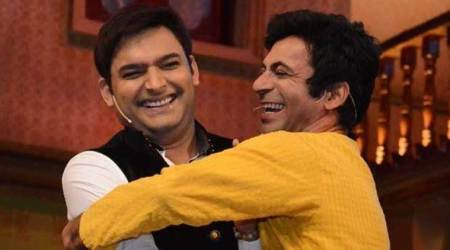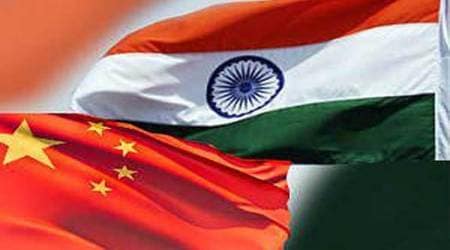 Confined to Islamabad, indeed caged in the city, she let no bureaucratic constriction hinder her personal Discovery of Pakistan.
Confined to Islamabad, indeed caged in the city, she let no bureaucratic constriction hinder her personal Discovery of Pakistan.
Meena Menon was The Hindu’s correspondent in Islamabad for only nine months (August, 2013 to May, 2014) before she was kicked out. It is astonishing to learn from this memoir of how, in such a short time, her empathetic interest in anything and everything Pakistani enabled her to rise well above routine reporting (and routine harassment) to range across virtually the entire gamut of life as it is actually lived in that “distant neighbour” of ours.
Confined to Islamabad, indeed caged in the city, she let no bureaucratic constriction hinder her personal Discovery of Pakistan. With a keen eye, a sharp ear, an open mind and a large heart, she kept in good cheer whatever the hurdles, made numerous friends, met everyone from top politicians to the proverbial taxi driver, wandered the by-lanes, shopped in different markets, explored the eating places, and did the sights, going to mosques and temples and churches around the capital.
Of course, she filed her regular reports, dutifully attended foreign office briefings, and informed her readers of political events and the proceedings in the National Assembly (Parliament). But she also immersed herself into Pakistan’s rich cultural life, interacted with artistes, painters, writers, social workers, political activists, fellow-journalists, and, of course, the aam admi. Instead of only obsessing over the India-Pakistan relationship, as many Indian reporters and most Indian diplomats do, it was Pakistan as a nation and a society, and Pakistanis as a people, who interested her. And, amusingly, she never allowed her minders, the two security guys who relentlessly trailed her (and whom she nick-named “Beard” and “Chubby”) to faze her or derail her from her purpose.
This is what makes this book so special: it takes in all the political and economic see-saw in Pakistan itself, and in our relationship with Pakistan, but rising above both the pride and the prejudice that often overwhelm our perceptions of that country, she unhesitatingly presents both the warts and the astonishing resilience of a people fighting fierce odds.
“I could walk around,” she writes, “and meet nice people”. “I had many friends and they were always helpful and kind”. She talks of “a senior politician who treated me like his daughter”. “Many parliamentarians were friendly,” she remarks, “even if they made anti-Indian statements.” A startling revelation is that “one place we felt quite welcome was the foreign office”! Elsewhere, she remarks, “this unconditional affection and warmth is overwhelming”. “Pakistani writers and journalists were always accessible” and “helped me understand their country”. She names a whole sheaf of them. She recounts her encounters with the wife of a Pakistani army general, Indu Mitha, who teaches “Bharatanatyam to enthusiastic Pakistanis” and Shenaz Minallah who, despite an attempt to burn down her headquarters, continues to run the Pakistan branch of Sri Sri Ravi Shankar’s “Art of Living”: “We do courses in mostly three cities and from twenty-odd people the number has swelled to over eighty per session”. There is a moving account of her friendship with the great Sufi singer, Abida Parveen, who says of her hopes for India and Pakistan: “Love is a force, it’s like the sea, it cannot break”. She interviews the Baloch Gandhi, Mama Qadeer, the proximate cause of her expulsion. And she admires Shoaib Sultan Khan, a development activist, “The Man from Pakistan”, who has done outstanding rural development work in Andhra Pradesh. She records, without further comment, Shoaib’s assessment of Rahul Gandhi who was much taken with his work: “this young man has his heart in the right place to do something for the poor”.
She contrasts “most of the media portrayal reinforcing the image of a backward and failed state” with “visitors (who) are pleasantly surprised when they see glimpses of a country that is different from what they think it is.” While surveying the many vicious disabilities to which the minorities are subjected (the Ahmedias are the worst treated, “the community lives on the razor’s edge”) she also finds space for “Pandit Chamanlal from Rawalpindi” asserting, somewhat startlingly, that “the Hindu community was not targeted in any way”.
Yet, she is no starry-eyed romantic. She sees the downside clearly: the “deep state” and its connections to terrorism; the persecution of Baloch dissidents and the atrocities inflicted on them; the blatant misuse of blasphemy laws; the sickening treatment of people with different sexual orientations; the awful collateral damage caused by drones; the soaring crime rate. There are graphic descriptions of suicide bomb blasts in the heart of Islamabad to which she was personal witness; and grim stories of mindless cruelty, murder and mayhem.
Her undiluted admiration is reserved for Pakistani journalists. “Journalists can be shot, kidnapped, threatened and abused…life hung on a thread”. Yet, “journalism in Pakistan has been bold and brave”. She concludes, “The government and the security empire have the upper hand. Yet, with all the powers at their command, they have not crushed the free spirit of the people who write and report at will”.
Meena Menon was unceremoniously thrown out of Pakistan in under a year. She harbours no bitterness. Balanced as ever, she remarks, of herself and the treatment meted out to Pak journalists in India: “there is no low both countries cannot stoop to.” Her final message is: “there is a call for peace and reason, however faint it may be, and it is coming from an invisible majority which is yet to come into its own”.







